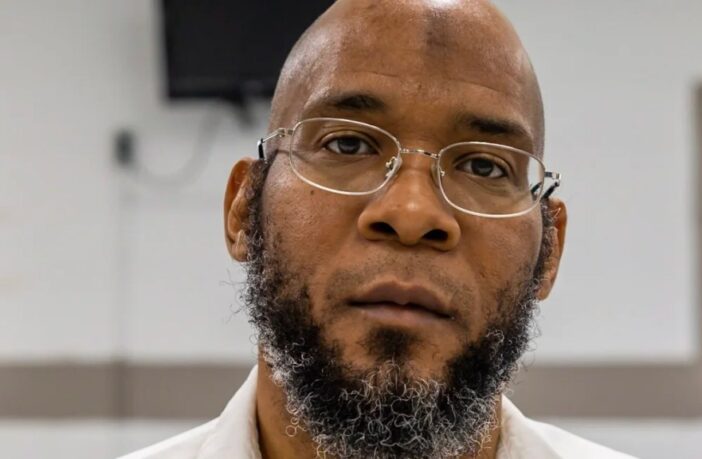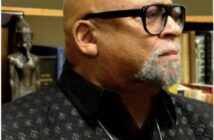By Rev. Dorothy S. Boulware
Word in Black
It’s no secret Black people in the United States disproportionately occupy Death Row — making up about 14 percent of the populace but 40.05 percent of people awaiting execution. And given that men are nearly 98 percent of the people facing capital punishment, incarcerated Black men are more likely to face death by the state than any other group.
Marcellus Williams, 55, is one of those men, and he’s scheduled to be executed Sept. 24 in Missouri. The prosecutor in his case filed a motion to vacate his conviction due to “overwhelming evidence that Marcellus Williams’ trial was constitutionally unfair, including revelations that the State contaminated the most critical evidence in the case—the murder weapon,” said Williams’ attorney, Tricia Rojo Bushnell. The courts, however, denied the motion.
As such, the case has reignited heated debates about racial injustice and the death penalty — and now faith leaders in the state are joining the fight to get clemency for Williams.
Marcellus Williams is scheduled to be executed Sept. 24 in Missouri. (Photo courtesy Marcellus Williams legal team)
Life instead of death
On Sept. 19, in a letter to Missouri Gov. Michael Parson, 69 faith leaders from Christian, Jewish and Muslim backgrounds asked for mercy for Williams.
“We are advocating for life without parole and that Marcellus will remain in prison, with the message that his life can remain open to redemption, mercy, and the healing power of God and that he will continue to serve the Muslim community,” the faith leaders wrote.
The group pointed out that Williams himself is a faith leader at Potosi Correctional Center, where he is incarcerated. Now known as Khalirfah ibn Rayford Daniels, Williams became an imam and serves his fellow Muslim prisoners at the facility.
“With lifetime imprisonment, Marcellus will have a chance to continue his service to the religious community that he leads as an Imam,” wrote the faith leaders.
They pointed out that Williams works with “a group of men, many of whom have been abandoned by society and in desperate need of guidance and strength,” and provides “a vital network of support for the prisoners.”
Members of the Mid Missouri Fellowship of Reconciliation (Mid-MO FOR) a nonprofit organization for “people from many faiths, and no particular faith — all coming together to support nonviolence and justice,” have also advocated for clemency for Williams.
On Sept. 18, they hosted a gathering at the University of Missouri School of Law to discuss the Williams case. One of the speakers was Michelle Smith, co-director of Missourians to Abolish the Death Penalty, who said, “Killing someone is final. We should make sure, as a state, as a community, as a government, that there are no questions.”
The NAACP is also calling on Parson to halt Williams’ execution, noting that the death penalty has been “historically applied in a racially disparate manner,” particularly in Missouri.
“Killing Mr. Williams, a Black man who was wrongfully convicted of killing a White woman, would amount to a horrible miscarriage of justice and a perpetuation of the worst of Missouri’s past,” NAACP President and CEO Derrick Johnson and Missouri State Conference President Nimrod Chapel Jr. wrote in an open letter to Parson.
“Put simply, Mr. Williams did not commit the murder for which he was convicted. The prosecutor knows it, and the citizens of Missouri know it,” they wrote.
Accusations of corruption
In 2001, Williams was convicted and sentenced to death for the 1998 murder of Felicia Gayle, a former St. Louis Post-Dispatch reporter.
The prosecution’s case hinged on witness testimonies and circumstantial evidence. However, DNA found on the murder weapon did not match Williams — a fact that has cast significant doubt on his conviction.
Despite these findings, Missouri courts have repeatedly upheld his conviction and death sentence.
According to the Innocence Project, “The State destroyed or corrupted the evidence that could conclusively prove his innocence and the available DNA and other forensic crime-scene evidence does not match him.” The organization notes, “There is far too much uncertainty in this case to allow Mr. Williams to be executed, particularly when the victim’s family believes life without parole is the appropriate sentence.”
In January 2024, after an independent review of Williams’ case, St. Louis County Prosecuting Attorney Wesley Bell moved to vacate his conviction. However, the circuit court denied the motion, stating there was insufficient evidence of innocence and that claims of racial bias in jury selection and ineffective assistance of counsel had been previously adjudicated. Bell is now appealing the decision to the Missouri Supreme Court, according to Williams’ filing for a stay of execution in the U.S. Supreme Court.
“We will continue pursuing every possible option to prevent Mr. Williams’ wrongful execution,” Bushnell, his lawyer, said. “There is still time for the courts or Governor Parson to ensure that Missouri does not commit the irreparable injustice of executing an innocent person.”
This article was originally published on WordinBlack.com.



